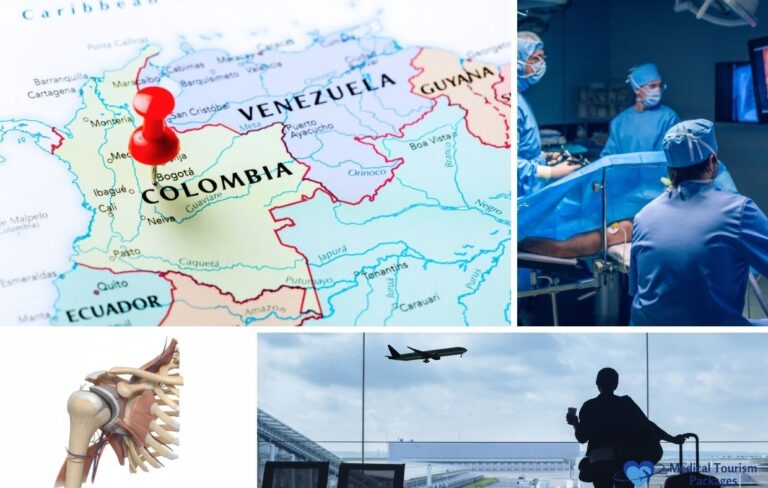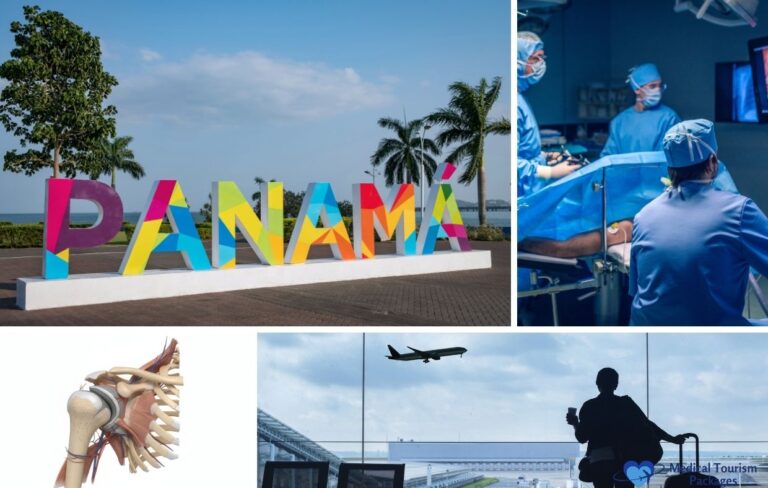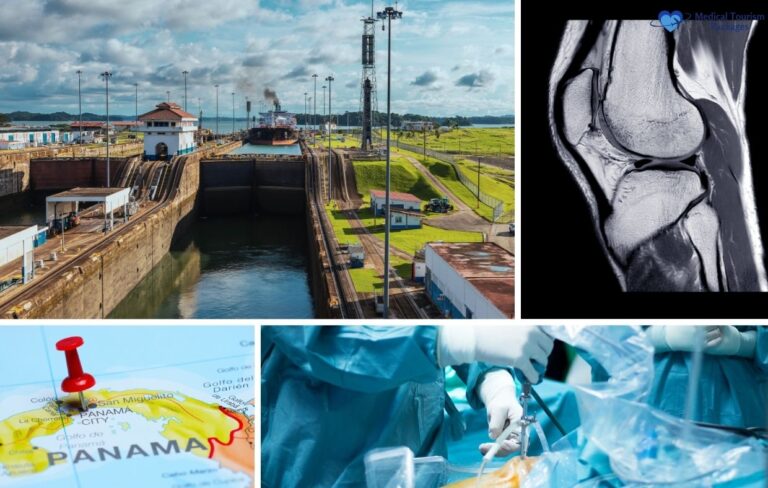Book Appointment Now
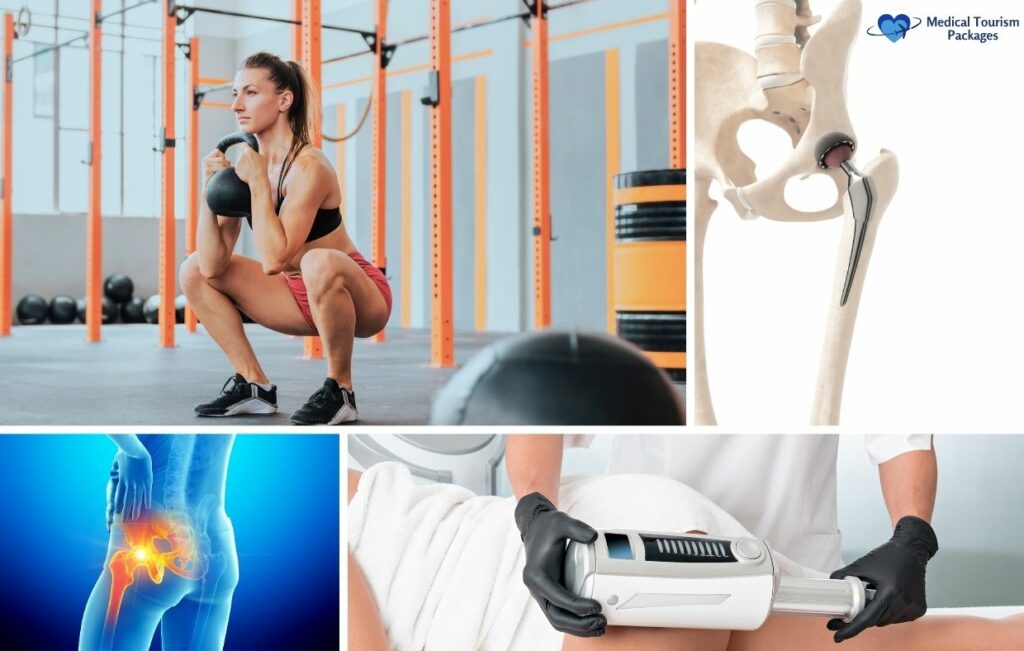
Hip Replacement in Colombia for Medical Tourists: Costs, Hospitals, Travel & Recovery
If you’re exploring hip replacement in Colombia as a medical tourist, this guide explains costs and what’s included, how to choose a JCI-accredited hospital and surgeon, what to expect for anesthesia and recovery, and how to plan visas, insurance, and flights.
Hip replacement surgery in Colombia offers an alternative for patients seeking treatment outside their home country. This guide provides information about costs, medical facilities, and healthcare standards for hip replacement surgery in Colombia.
What is hip replacement surgery?
Hip replacement surgery, also known as hip arthroplasty, is one of the most common orthopedic procedures primarily aimed at relieving pain and restoring function for individuals suffering from hip joint damage. This damage often results from conditions like osteoarthritis, rheumatoid arthritis, osteonecrosis, or injuries that have not improved with other treatments. During the surgery, a surgeon replaces the damaged parts of the hip joint with artificial components, known as a prosthesis.
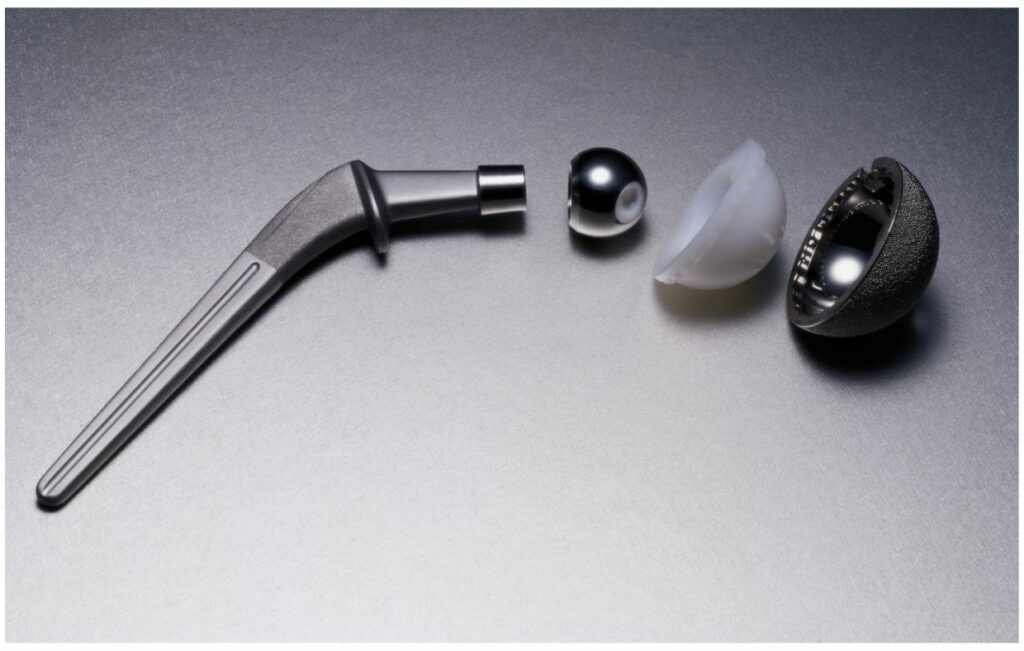
The prosthesis typically consists of a ball component, made of durable metal or ceramic, which substitutes the femoral head, and a socket component, which replaces the damaged acetabulum of the hip bone. This operation can significantly enhance the quality of life by improving mobility and reducing pain, thereby allowing patients to return to their daily activities with greater ease. The decision to undergo hip replacement is made after careful consideration of the patient’s overall health, the extent of hip damage, and the expected improvement in function and pain relief.
Why choose Colombia for hip replacement surgery?
Choosing Colombia for hip surgery offers significant advantages, including lower costs compared to the USA and Europe, without compromising on quality. Colombia boasts high-quality medical facilities that are on par with those found in developed countries, ensuring patients receive top-notch care. Additionally, English-speaking surgeons in Colombia often have international training, providing a comfortable and familiar experience for international patients.
Quick facts (for international patients)
- Typical in-country stay: ~2–3 weeks (pre-op tests 2–3 days, surgery + 3–5 days inpatient, initial rehab 5–7 days).
- Primary anesthesia options: regional (spinal/neuraxial) or general—your anesthesia team will individualize.
- Common packages include: surgeon + hospital/OR, implant, anesthesia, labs/imaging, inpatient meds, initial physical therapy.
- Language support: major hospitals have International Patient offices with English-speaking staff or interpreters (confirm in writing).
- Main gateways: Bogotá (BOG), Medellín (MDE); regional connections to Cali and Bucaramanga.
- Accreditation to look for: JCI (Joint Commission International) and an active International Patients program.
This combination of affordability, quality, and accessibility makes Colombia an attractive destination for those seeking affordable healthcare solutions outside their country of residence.
How much does hip replacement cost in Colombia?
Most international patients see all-in quotes (primary total hip replacement) in the low-five figures USD, typically well below U.S. self-pay rates. Exact pricing depends on city, implant model, hospital level, and length of stay.
What drives the price
- Implant choice: standard vs premium bearing surfaces, cemented vs cementless.
- Hospital level & LOS: tertiary/JCI centers and ICU backup add cost; uncomplicated stays are usually 3–5 days.
- Surgical approach & case complexity: BMI, bone quality, prior surgery, medical comorbidities.
- What’s in the bundle: some quotes include labs, imaging, inpatient meds/DVT prophylaxis, initial PT, interpreter, airport transfers—others do not.
Cost checklist (ask for an itemized quote)
- Surgeon + assistant fees
- Hospital/OR + anesthesia
- Implant brand/model (+ cement if used)
- Labs, imaging, pharmacy/DVT prophylaxis
- Inpatient PT and first outpatient sessions
- Interpreter/translation (if needed)
- Transfers, hotel/extended stay, caregiver support
U.S. comparison, safely stated
U.S. charges for the same procedure vary widely by region, facility, and insurance design; many patients find substantial savings by having surgery in Colombia even after adding flights, lodging, and insurance. For a fair comparison, always request itemized quotes in both countries.
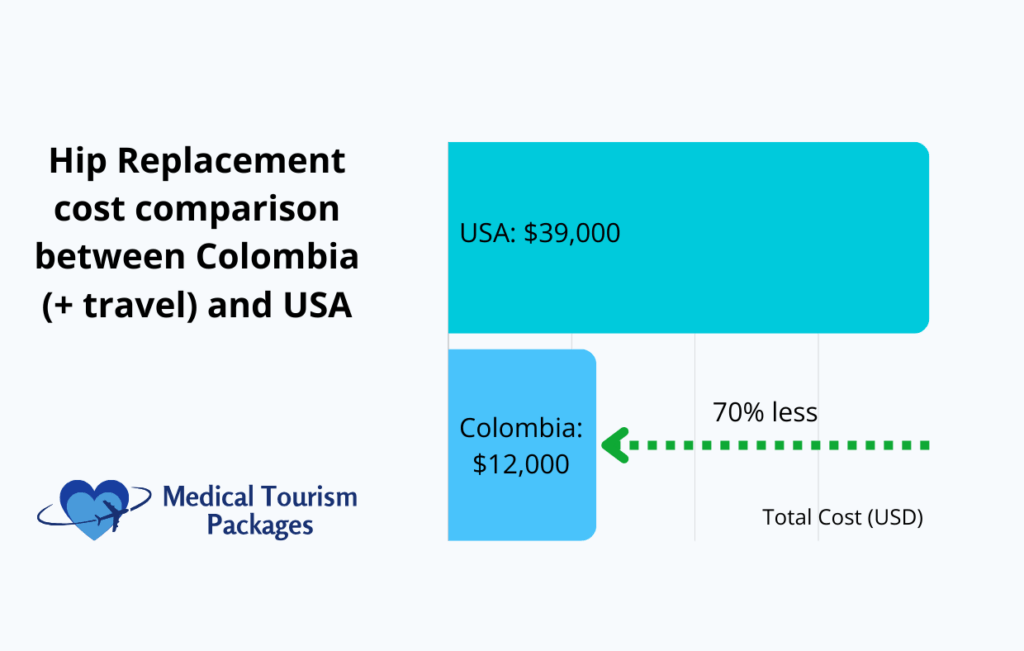
How do I choose a hospital or surgeon in Colombia?
Selecting the right team is the single best predictor of a smooth outcome. Use this 5-point checklist:
- Rehab plan & follow-up: get a written rehabilitation schedule, and a plan for records transfer and tele-follow-ups.
- Accreditation & safety: prioritize JCI hospitals and ask how many primary THA cases they handle annually.
- Surgeon volume: higher annual THA volume is generally associated with fewer complications—ask for numbers.
- International Patients office: confirms language services, document handling, bundled pricing, and logistics.
- Implant transparency: request the brand, model, fixation (cemented vs cementless), and patient card.

Hospitals with strong international-patient programs (examples—verify current accreditation):
The following hospitals have established reputations for treating international patients and maintain JCI accreditation, though you should always verify current accreditation status before making your final decision:
- Fundación Santa Fe de Bogotá (Bogotá) — JCI-accredited; established joint-replacement program; International Patients office.
- Hospital Pablo Tobón Uribe (Medellín) — JCI-accredited; experienced orthopedics; International Office for foreigners.
- Centro Médico Imbanaco (Cali) — JCI-accredited; comprehensive orthopedics and rehabilitation services.
- Hospital Internacional de Colombia – HIC (Bucaramanga) — JCI-accredited; integrated specialty network; International Patients services.
Tip: when you contact any hospital, ask for the International Patients coordinator specifically and request a written, itemized bundle.
What medical equipment and implants are used in Colombia?
Colombian hospitals use internationally recognized implant brands and materials. Key suppliers include:
- Enovis Surgical
- Zealmax Ortho, which provides:
- 600+ product designs
- ISO and GMP certified products
- Distribution to 70+ countries
What do I need to know about visas, insurance, and payments?
Visas
Most medical tourists enter on standard visitor permissions; some cases may require a Visitor (V) visa for medical treatment. Always confirm current rules with the Colombian Ministry of Foreign Affairs before booking.
Insurance
- Confirm whether your hospital accepts card/wire and if prepayment is required.
- U.S. Medicare/Medicaid generally don’t cover elective care abroad; some Medigap plans include limited foreign emergency benefits.
- Buy travel medical insurance and consider medical evacuation coverage.
What is the treatment process and recovery timeline?
Sample 2-week itinerary (uncomplicated primary THA)
- Days 13–14+: fit-to-fly assessment; travel home when cleared
- Days 1–2: pre-op consults, labs, imaging, anesthesia evaluation
- Day 3: surgery
- Days 3–7: inpatient recovery (mobilize day 1; DVT prevention; pain control)
- Days 8–12: nearby outpatient PT; wound check
Pre-Surgery Requirements
Before your hip replacement surgery in Colombia, you’ll need to complete the following essential requirements to ensure a smooth surgical experience:
- Comprehensive medical evaluation
- Required documentation for medical visa (if applicable)
- Arrangement of health insurance coverage
Post-Surgery Care
Discuss long-haul flights with your surgeon—many patients delay long flights ~6 weeks to reduce DVT risk.
Standard recovery protocol includes:
- 4-5 day hospital stay
- Structured rehabilitation program
- Regular follow-up appointments
- Return to work timeline:
- Sedentary jobs: 4-6 weeks
- Physical jobs: 8-12 weeks
What are the outcomes and safety records?
Hip replacement has excellent global outcomes with very low short-term mortality and high implant longevity. Your best predictors of a smooth course are: hospital/surgeon volume, clear rehab plans, transparent implant details, and reliable follow-up. Choose accredited centers and ask for written protocols.
What are the risks and complications?
While hip replacement surgery in Colombia is generally safe and effective, like any surgical procedure, it carries certain risks and potential complications. These include the risk of infection, which is meticulously managed through stringent sterilization protocols and post-operative care. There is also a potential for blood clots, against which preventive strategies such as medication and early mobilization are employed.
The longevity of the prosthesis is another consideration, with ongoing advancements in materials and techniques aimed at maximizing the lifespan of hip replacements. Patients are advised to discuss these risks thoroughly with their healthcare provider to make informed decisions about their surgery.
Key risks & how hospitals mitigate them
- Medical risks (cardiac, pulmonary): pre-op screening and anesthesia assessment.
- Infection: strict sterile technique, peri-op antibiotics, wound care instructions.
- Blood clots (DVT/PE): early mobilization, compression, and blood thinners when indicated.
- Dislocation/implant issues: patient positioning, approach-specific precautions, modern implants, and technique.
How do I prepare for hip replacement surgery in Colombia?
Preparing for hip replacement surgery in Colombia involves several key steps to ensure a smooth and successful medical journey. Patients are required to undergo necessary pre-surgery medical evaluations to assess their suitability for the procedure and to tailor the surgical approach to their specific health needs. Understanding visa requirements and planning the length of stay are crucial logistical aspects that need to be addressed well in advance of the surgery date.
Additionally, arranging for an interpreter may be necessary for patients who do not speak Spanish, to facilitate clear communication with the medical team and ensure a comfortable experience throughout their stay in Colombia.
What pre-surgery medical evaluations are necessary?
Before undergoing hip replacement surgery in Colombia, you’ll need to complete several medical evaluations to ensure you’re a suitable candidate for the procedure and to minimize surgical risks.
| Evaluation Type | Description | Why It’s Needed |
|---|---|---|
| Blood Tests | To check for any conditions that could complicate surgery or anesthesia. | Ensures patient safety and optimal surgery planning. |
| Physical Examination | Comprehensive health check to assess fitness for surgery. | Identifies any potential risks or contraindications for surgery. |
| Imaging (e.g., X-rays) | To view the current state of the hip joint and surrounding structures. | Helps in surgical planning and provides a baseline for post-surgery comparison. |
| Cardiac Evaluation | Assessment of heart health, especially for patients with known heart issues. | Ensures patient can safely undergo surgery and anesthesia. |
What are the visa requirements and length of stay?
Planning your visa application and determining the appropriate length of stay are essential steps in preparing for hip replacement surgery in Colombia.
Most travelers will need a visa for medical treatment in Colombia. Check the Colombian embassy’s website in your country for specific visa requirements and procedures, as regulations can vary depending on your nationality and the purpose of your visit. Some patients may qualify for standard visitor permissions, while others may need to apply for a specific medical treatment visa.
Your typical length of stay will be 2-6 weeks, including pre-surgery evaluations and initial recovery. However, consult with your surgeon for a personalized estimate based on your specific surgery type, overall health condition, and recovery plan. Factors like surgical complexity, your body’s healing response, and any pre-existing conditions can all influence how long you’ll need to remain in Colombia.
How do I arrange for an interpreter if needed?
Effective communication with your medical team is crucial for a successful surgery and recovery, and interpreter services are readily available for international patients who need language support.
Professional interpreters can facilitate communication with your medical team throughout your entire medical journey, from initial consultations to post-operative care instructions. To arrange these services, simply ask your hospital or medical facilitator in Colombia when you first make contact. Most JCI-accredited hospitals have dedicated International Patient offices that can coordinate interpreter services as part of your care package. Be sure to confirm the availability, cost, and scope of interpreter services in writing before your arrival to avoid any miscommunication.
What are medical tourism packages for hip replacement?
Medical Tourism Packages for hip replacement surgery in Colombia offer comprehensive solutions that address both medical and logistical needs. These packages typically include pre-operative consultations, the surgery itself, post-operative care, and rehabilitation services, along with assistance for travel arrangements, accommodation, and local transportation.
Colombian healthcare providers partner with international medical facilitators to create seamless experiences for patients, handling everything from medical records transfer to interpreter services. The packages are customizable based on individual needs, with options for different levels of accommodation and support services.
These all-inclusive packages help reduce the complexity of arranging international medical care while providing significant cost savings compared to undergoing the same procedure in countries like the United States or Canada. Patients benefit from having a single point of contact who coordinates all aspects of their medical journey, ensuring a smooth and stress-free experience.
Frequently Asked Questions
What is hip replacement surgery?
Hip replacement surgery, or hip arthroplasty, is a procedure to relieve pain and restore function in individuals with hip joint damage. It involves replacing the damaged joint with an artificial prosthesis made of metal, ceramic, or plastic components to improve mobility and quality of life.
Why choose Colombia for hip replacement surgery?
Colombia offers affordable, high-quality medical care with JCI-accredited hospitals and internationally trained orthopedic surgeons. The cost of hip replacement surgery is significantly lower than in the U.S. or Europe, while maintaining excellent healthcare standards.
How much does hip replacement surgery cost in Colombia?
The cost of hip replacement surgery in Colombia ranges from $8,400 to $12,000, significantly lower than the average $39,000 in the U.S. This cost typically includes surgery, hospital stay, and basic post-operative care.
What is the recovery time for hip replacement surgery?
Patients typically stay in the hospital for 4–5 days after surgery. Light daily activities can resume in 4–6 weeks, while full recovery and return to physically demanding work may take 8–12 weeks.
What are the risks of hip replacement surgery?
Common risks include infection, blood clots, and implant wear over time. These are minimized through proper surgical techniques, post-operative care, and adherence to rehabilitation plans.
When can I fly home after hip replacement?
Your surgeon will clear you based on recovery and blood-clot risk; many patients delay long-haul flights about 6 weeks.
Which Colombian cities are most common for hip replacement?
Bogotá, Medellín, Cali, and Bucaramanga have major centers treating international patients.
Will the hospital provide an interpreter?
Most international units do; confirm availability and cost in writing.
What implant will I receive?
Ask for the brand, model, fixation type, and your implant card. Implants used in major centers are typically CE/FDA-cleared and INVIMA-registered.
How do I compare quotes fairly?
Use the Cost checklist above and make sure both quotes include the same line items (implant, anesthesia, imaging, pharmacy/DVT, PT, interpreter, hotel/transfers).
Ready to explore hip replacement in Colombia?
Choosing hip replacement surgery abroad is a significant decision that requires careful planning and expert guidance. Colombia offers world-class medical facilities, experienced orthopedic surgeons, and substantial cost savings compared to the United States and Europe, all while maintaining the highest standards of patient care and safety.
Our medical tourism specialists can help you navigate every step of your journey, from selecting the right JCI-accredited hospital to arranging travel logistics and post-operative care. Contact our medical tourism specialists today to receive personalized quotes, connect with top surgeons, and start planning your path to pain-free mobility in Colombia.

